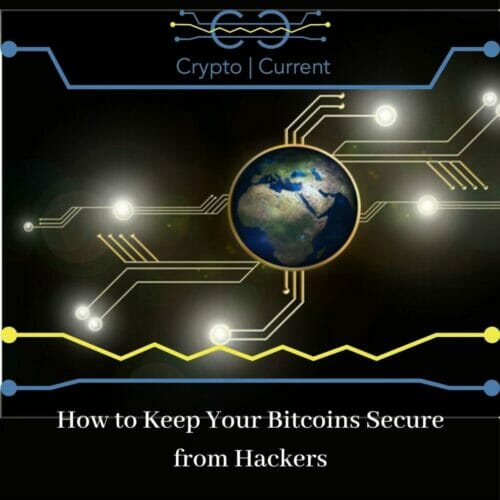How to Keep Your Bitcoins Secure
How to Keep Your Bitcoins Secure from Hackers???
Bitcoin’s meteoric rise in 2020 has enticed several investors to the market. The coin which hit $24,500 in the middle of December has sparked up a large increase in the value of other alternative coins. Bitcoin’s adoption is becoming so widespread that major e-payments provider, PayPal, announced the addition of the premier cryptocurrency to its platform.
PayPal released this information in October, stating that full digital currency implementation will take place early next year. Buying and selling of major cryptocurrencies into different fiat currencies will also be available on the platform. This news has added more speculative investors to the virtual currency market.
Digital coins have the potential to present buyers with massive returns on investment. However, these profits mean nothing if the holder gets hacked. Certain cybersecurity risks plague digital currency investors.
Security Risks Associated with Storing Bitcoin
- Phishing
Phishing is a hacking method used by cybercriminals to deceive a user into sending login credentials. The details gotten are then utilized to force entry into the victim’s online account.
Phishers perform this by establishing a phony website that looks exactly like the original then sending an electronic mail. The mail creates a false sense of urgency which prompts the victim to log into the bogus website. Once the details are fixed, it gets sent to the criminal. Phishing attacks are more successful on crypto investors that keep their coins on an exchange.
- Digital Exchange Hacks
Since the rise of bitcoin’s popularity in 2011, crypto exchanges have experienced hacks several times over the years. Exchanges typically use hot wallets which are consistently connected to the internet so investors can gain total access.
Anything of value that’s constantly connected to the web is exposed to cyber threats. And crypto exchanges store billions in monetary value, making them juicy targets. At least 25% of the top digital currency exchanges have been hacked.
Even the most prominent crypto exchange, Binance, got hacked in May 2019, although the company restored the coins to their owners. Unlucky investors that invested in an exchange like Mt. Gox that got hacked twice in 2011 and 2014 have still not recovered their money in 2020.
Cybersecurity Solutions for Storing your Bitcoins
In face of numerous security risks, users and traders must step up their effort to secure their wallets. Here are some tips to keep your Bitcoins secure.
- Scrutinize your Received Emails
You have to check every email you receive carefully to prevent phishing. Phishing emails look like they’re from official sources to deceive users. They also try to make you take action quickly without subject lines like ‘Your Account is under Attack’.
To identify a phishing email, carefully check the sender’s email address. Compare it to your exchange’s email address from previous mails sent to you. Before you click any link in the email, hover above the link to see where it leads.
The URL address could be misspelled to deceive you, so watch out for that too. Be careful of downloading email attachments from unknown senders too as they could contain crypto-stealing malware.
- Use Two-Factor Authentication
Two-factor authentication was created to frustrate hackers that have successfully stolen a user’s login credentials. It requires the provision of a code after the username and password have been inserted on a website. The two-factor code is dynamic and is very difficult to get.
Activating two-factor authentication on your online bitcoin wallet will prevent cybercriminals from stealing your coins. Two-factor verification can be activated through SMS or an authenticator app.
- Utilize a VPN before Connecting to your Exchange
There are targeted attacks that can happen to bitcoin holders on public Wi-Fi networks and home routers. A user’s internet activity can be seen if a hacker penetrates the person’s network.
A VPN ensures the total isolation of your communication between your wallet and device. In a case where your internet data is getting sniffed on, a VPN will block your data from being seen by a third party. Applying a VPN as a security tool is one of the best ways to secure your bitcoins.
- Use Cold Wallets
Since digital currency exchanges can sometimes get hacked, you’d best use a cold wallet. A cold wallet is the most secure kind of wallet for storing your bitcoins. This hardware wallet is mostly offline and is highly unlikely to get hacked when it’s connected to the internet. If you’re looking to buy crypto for the long-term, go with a cold wallet. There are lots of cold wallets you can buy like Ledger and Trezor.
Crypto Current will be guiding all of you who are new to the cryptocurrency world to becoming a cryptocurrency and blockchain expert. Crypto Current was founded to give access to information to everyone on current events occurring in cryptocurrency and blockchain in a digestible way. Since its creation, we have created content that impacted thousands of people through its podcast, blog, and social media.










